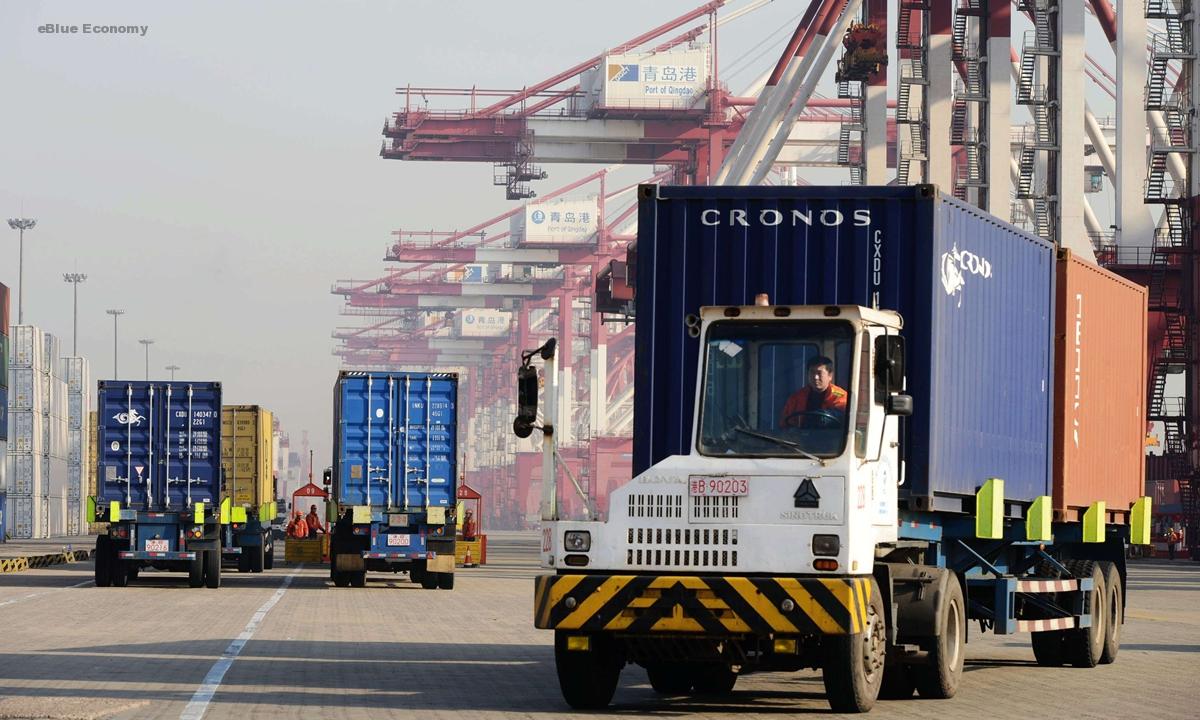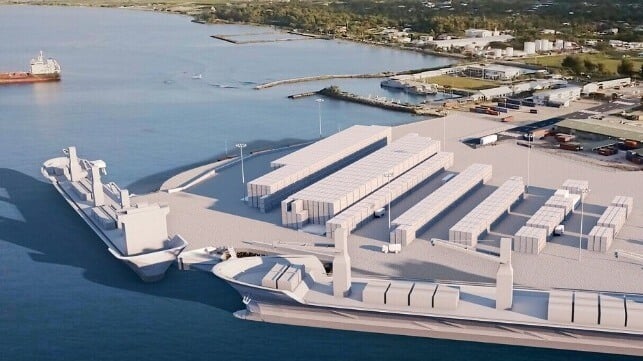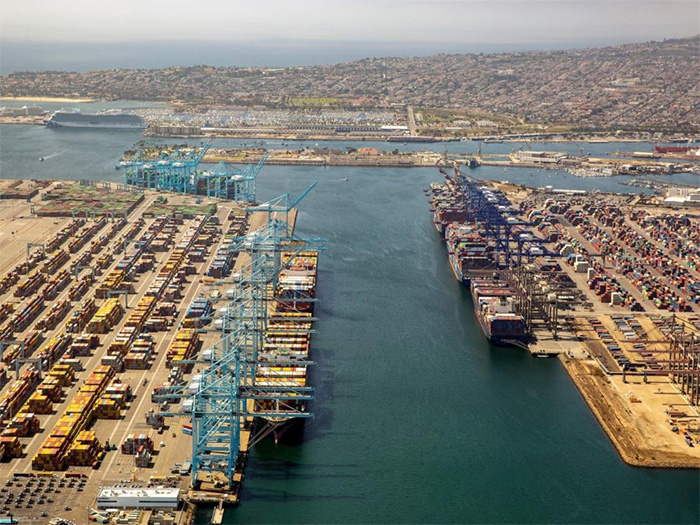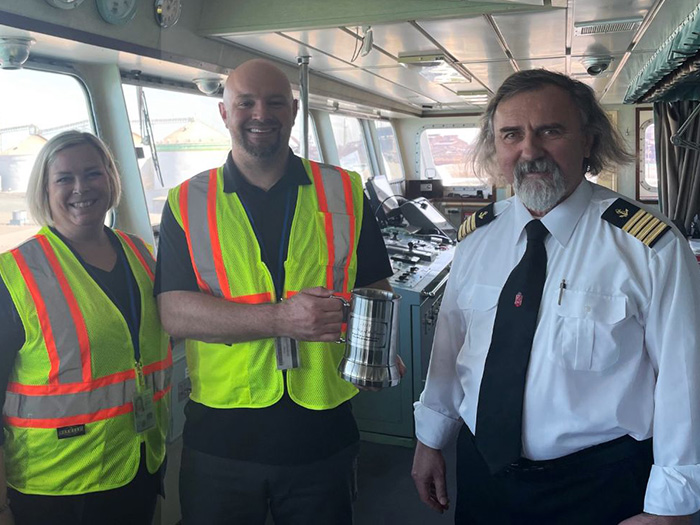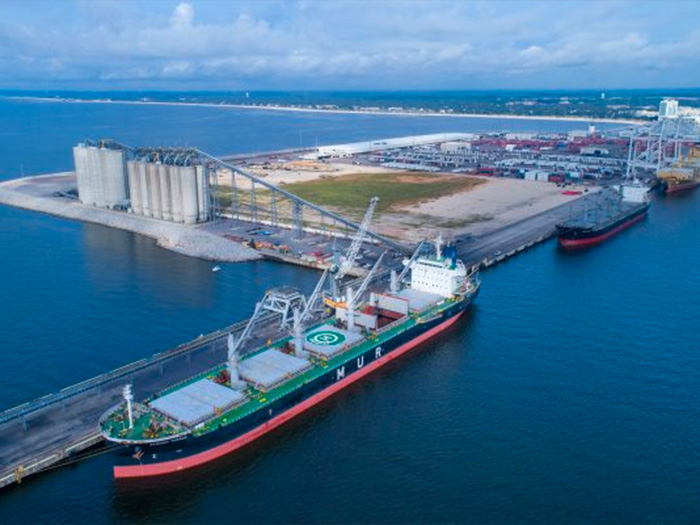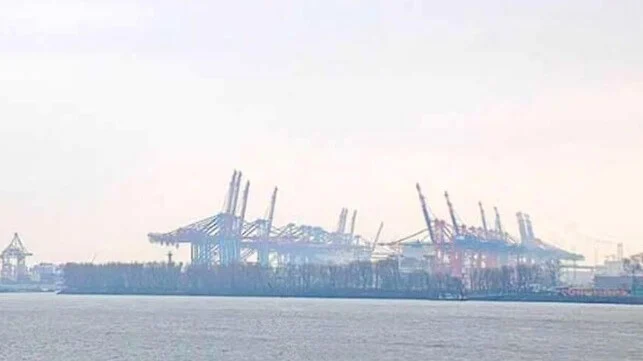Marek Grzybowski
Chilled and frozen food products transport by sea is growing dynamically. The number of reefer ships will be systematically decreasing.
Total transport of fresh produce by sea increased by 5% to 116 million tonnes in 2017, refrigerated container transport by 8% and this trend should continue—according to the latest Reefer Analysis report—Market Structure, Conventional, Containers.
The number of reefer cargo ships has dropped by 55% to around 550 vessels since 2000, Dynamar counted. And the market for transporting perishable foods will grow by as much as 10% to 15% per year—forecasts Maersk, the leader in container shipping by sea. The market for services (transport, transhipment in ports, storage, distribution) for refrigerated goods will be steadily growing, according to the forecasts of many global operators.
A total of 252,452 TEUs of reefer containers were processed, an increase of +23% compared to the first quarter of 2019 (205,157 TEUs) in the Port of Antwerp. Ingrid Vanstreels, Key Account Manager Shippers & Forwarders at the Port of Antwerp: “These exceptional figures for the first quarter confirm our efforts to be the perishables port of choice in Europe”. See more: “Blue Economy: Port of Antwerp – Exceptional growth in reefer segment” (https://eblueeconomy.com/ports-port-of-antwerp-exceptional-growth-in-reefer-segment/).
Seabury Consulting predicts an annual increase in the value of services of 7%, and by 4% in refrigerated cargo sea transport according to Drewry, while SeaCube predicts an annual increase of 4.5%. The supply of meat in international trade will grow 12% per year, Seabury forecasted during the 10th Cool Logistics Global conference in Antwerp. The pharmaceutical market has already achieved transports of 567 thousand TEU reefer containers in 2018 informed Kuhne & Nagel, leader in the PharmaChain seafreight service.
The coronovirus pandemic adjusted the forecasts. Demand for meat and fruit imported from South America will slow down. Many reefer ships will lose cargo. There are companies that invest in refrigerated cargo transport. Evergreen Marine ordered 1800 Star Cool refrigerated containers in April this year. Maersk Container Industry (MCI) will be the supplier.
This is good news for the producer that has undergone extensive restructuring in recent years. The company closed the factory in Chile and laid off 1,200 employees in 2018. Half of the crew (2,000 people) was dismissed at the plant in China in 2019.
Drastic halting of expenditure on refrigeration systems by shipping operators in 2016 led to significant shortages of cargo space. The production of new refrigerated containers gained momentum in 2017. The investment activity of shipowners also brings effects. Today, Maersk transports about half a million containers of vegetables and fruit annually.
For comparison, MSC transports 1.4 million TEU of refrigerated and frozen cargo annually, Antonino Ferraiolo, Mediterranean Shipping Company expert on refrigerated cargo transport, reported. Global trade in this type of cargo was estimated at around 9 million TEU according to Hannes Lässig from Kuhne + Nagel, of which about 40% is frozen food, and about 3% is pharmaceutical and healthcare products.
CMA CGM has one of the largest (over 400,000 TEU) and youngest fleet of refrigerated containers in the world. ZIM Integrated Shipping Services recently ordered 500 Star Cool refrigerators from Maersk Container Industry. ZIM has around 300,000 refrigerated containers.
Maersk Line announces that it transports refrigerated goods in 12 million containers every year. According to Drewry Maritime Research, the global container fleet reached 32.9 million TEU in 2012. Currently, approximately 45 million TEU are available to freight forwarders. Refrigerated vessels are slowly departing into oblivion along the route that traditional general cargo vessels have followed.


